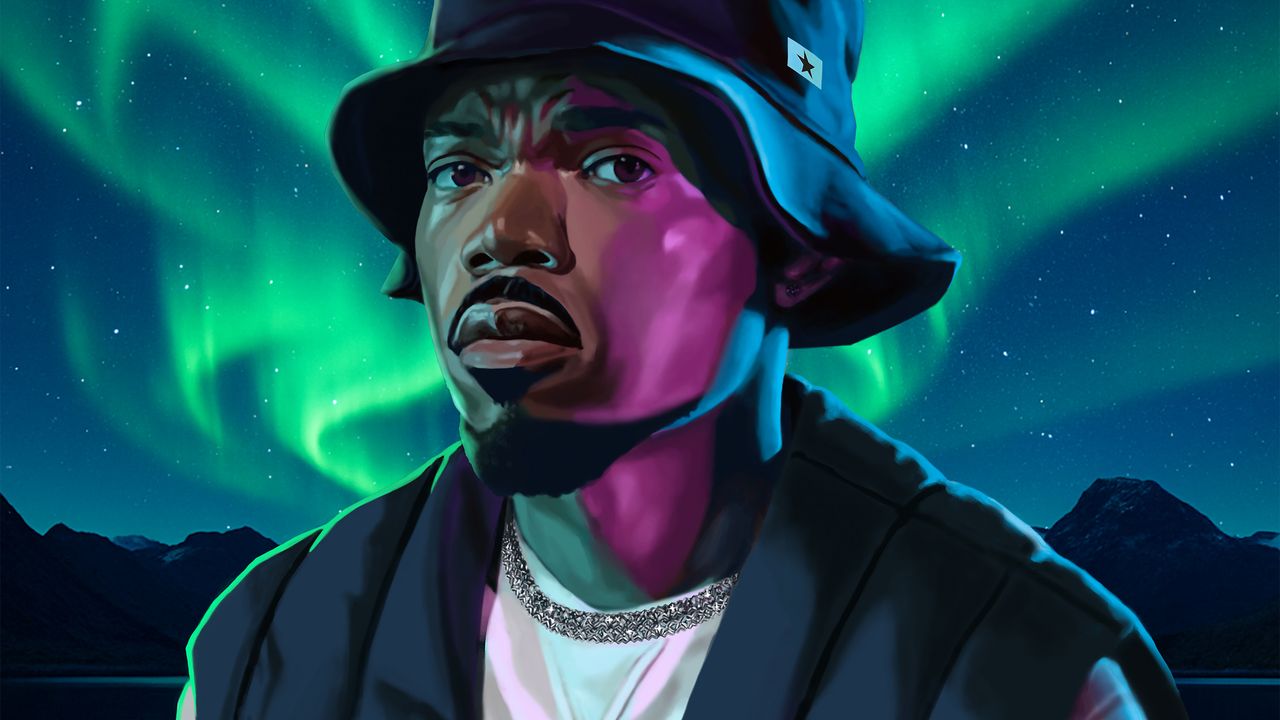There was a time when Chance the Rapper was in full control of his image. He was a philanthropist, a man of God, a Chicago indie rap giant with the blessing of his idol, a snapback entrepreneur, a happy father, and an even happier husband. Then came 2019’s disastrous The Big Day, a jubilant and righteous celebration of his faith, institutional success, and marriage, with very little depth or detail. In a matter of months, the public took control of Chance’s image and transformed him from Renaissance man to meme.
“Sometimes it feels like you’re holding back,” a long-time friend told Chance in Los Angeles writing sessions, not long after dropping The Big Day, his first solo project to receive widespread public and critical scrutiny. “Specifically on what you speak on and what you want to touch on in your music.” “Well, yeah, I’m a whole fuckin’ dad,” he responded, feeling the pressure. “I’m a husband. I’m a pillar of the community.” Her advice was to jot the thoughts down anyway, even if he never recorded them for the world to hear.
Three years ago, on The Breakfast Club, Chance called that the best rap advice he’s ever gotten. It’s hard to imagine Star Line, his new album, would exist without it, as he attempts to be vulnerable and honest, to balance out his trademark optimistic chirps and writerly customs with all of the life he’s lived in the six-year gap between projects. It went a little like this: He turned 30. He pulled a Nas in Belly and went soul-searching on the continent of Africa, specifically Ghana, where he read up on Kwame Nkrumah and built a deeper bond with his Blackness and the diaspora (the album gets its name from Marcus Garvey’s Black Star Line, a steamship company at the heart of the Pan-African movement in the early 20th century). He questioned the church and his role as a father. He went viral in 2023 for joyfully catching a whine at Jamaica’s carnival, as the internet conversation, unaware that he had been recently separated, used it to debate his phoniness. In 2024, he and his wife officially filed for divorce. It sounded like a time in his life where he was lost, coming apart at the seams, and trying to figure out how to stitch it all back together.
I immediately think of the deflated crooning of 808s & Heartbreak and the therapy-speak blowups of Mr. Morale & The Big Steppers as albums that confront a moment when a vaunted rapper, who reached otherworldly heights, is sent crashing down to Earth. Of course, we’re talking about Chance the Rapper here; Star Line is nowhere near as raw, uncomfortable, or openly narcissistic as any of those. He has more to rap about than ever, but his half-committed divorce album is simply boring, only scratching the emotional surface when he’s not hiding behind technique.
